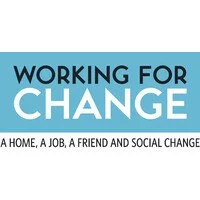
worker wellness supports
We provide a variety of direct and consulting services for organizations and collectives looking to build stronger, more sustainable teams.
Services include:
Conflict Support & Mediation
Burnout & Sustainability Consulting
Training & Workshops
Organizational Assessments & Audits
Spiritual Care & Integration
Solidarity Processes For lateral violence
Frontline Staff Assessment
Group-based processes for frontline teams experiencing conflict, crisis, and tension. Areas of exploration within solidarity-building workshops include locating shared values and ethics, mapping individual and collective skills, and narrative-based practices about our calling to the work.
Management Coaching
Meeting with management team to bring forward needs from frontline staff, coaching protocols for managers to enhance conflict resiliency within teams.
All-Staff Process
Presentation of org-specific recommendations, solidarity-building process and conflict coaching.
Final all-staff processes are an opportunity to ground back into shared ethics, common goals, and stumbling blocks toward understanding and collaboration.
Grief and Loss Care
Grief Circles and Counselling
Short-term grief care circles offered to impacted community members following a death or significant non-death loss. Circles run 1.5 hours, and my response time can typically accommodate a circle within 48 hours following a loss.
Grief Skill-Building and Psychoeducation
Accessible, equitable, harm reduction-informed skill-building workshops for frontline workers looking to increase confidence and sustainability as a grief care provider.
Focuses include applying transformative justice and abolitionist paradigms to grief care, and non-denominational spiritual care approaches.
Client Experiences
YWCA Hamilton
“working with aporrai consulting is the best investment we can make for our teams.”
Bereaved Families of Ontario - Toronto











